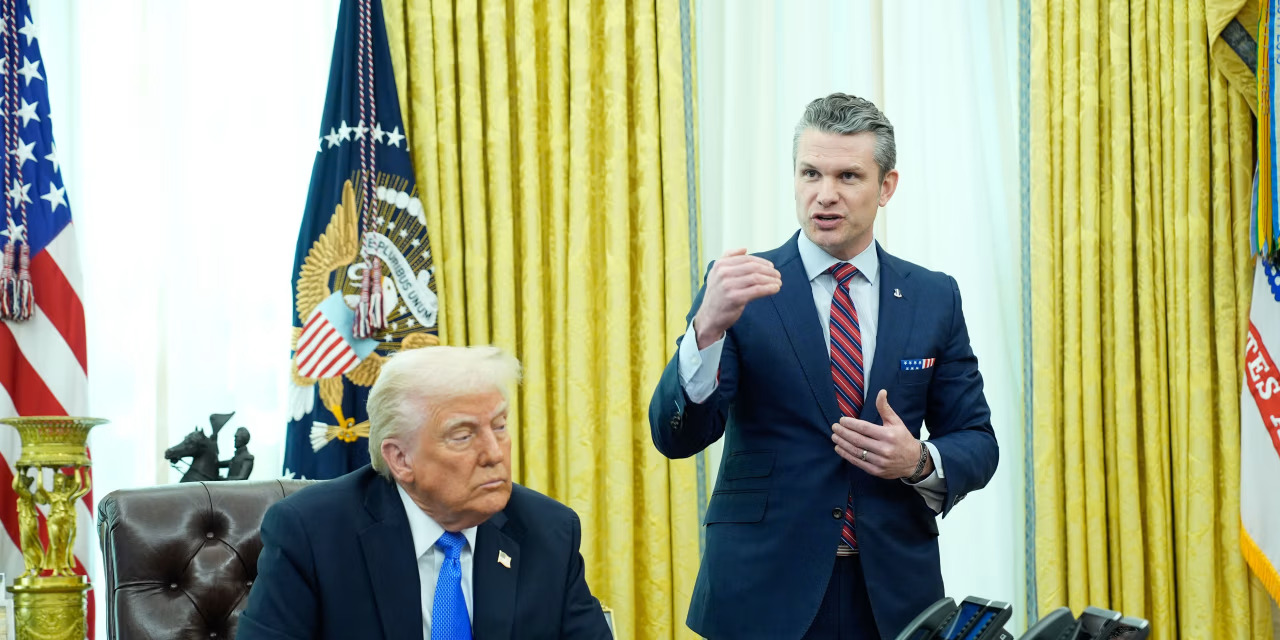Former senior national security officials and Democratic lawmakers have criticized the Trump administration’s claim that details of a planned U.S. airstrike shared with a journalist were not classified. The controversy emerged after The Atlantic published a full transcript of a Signal text exchange in which top national security officials discussed the strike.
Defense Secretary Pete Hegseth reportedly shared specific details, including the timing of fighter jet and drone launches, as well as a U.S. attempt to eliminate a terrorist target. However, he did not disclose specific targeting locations. Despite the administration’s denial, national security experts argue that such operational details are inherently classified.
Experts Warn That Leaked Military Plans Could Endanger U.S. Forces and Missions
Experts assert that disclosing military plans in advance poses significant risks. Former CIA Director and Defense Secretary Leon Panetta stated that any information about an upcoming military attack, including weapon types and timing, is classified to prevent adversaries from gaining an advantage.
Three additional officials, speaking anonymously, emphasized that revealing such details could endanger U.S. personnel and jeopardize the mission. According to a Pentagon classification manual, significant military plans and intelligence matters are deemed “secret” because their disclosure could cause serious harm. Additionally, a 2014 guide from the national intelligence director’s office specifies that advance warnings of U.S. attacks should be classified as “top secret.”

Leaked Signal Chat Raises Concerns Over Military Secrecy and National Security Risks
The full group chat published by The Atlantic confirmed that Hegseth inadvertently shared the attack details on the open-source Signal messaging app, unaware that journalist Jeffrey Goldberg had been mistakenly invited. The chat logs revealed precise strike timing, including when F-18 fighter jets and drones would launch and when bombs would hit their targets.
The discussion also covered intelligence on a Houthi leader’s location, indicating a targeted strike. National Security Adviser Mike Waltz, who initiated the chat, acknowledged that a U.S. airstrike collapsed a building where a high-ranking militant was located. These revelations raised concerns about the administration’s handling of sensitive military operations.
Despite the backlash, Trump administration officials continued to downplay the incident, insisting that no classified information had been leaked. White House Press Secretary Karoline Leavitt described the chat as a “sensitive policy discussion” rather than an intelligence breach.
Officials also argued that the chat did not disclose intelligence sources, specific target locations, or military unit names, which they claimed are the key elements defining classified information. Director of National Intelligence Tulsi Gabbard reinforced this stance during a House Intelligence Committee hearing, asserting that the discussion contained no actionable intelligence that could endanger national security.
Democratic lawmakers, particularly those with military backgrounds, strongly rejected the administration’s defense. Rep. Jason Crow, a combat veteran, warned that if adversaries like the Houthis or Iran had intercepted the information, it could have endangered U.S. forces and compromised the mission.
He highlighted the Houthis’ advanced air-defense systems, which have previously been used to shoot down U.S. drones, making operational secrecy crucial. Crow condemned the administration for failing to take responsibility and called for Hegseth’s immediate resignation, describing the situation as a “leadership failure” that endangered national security.


